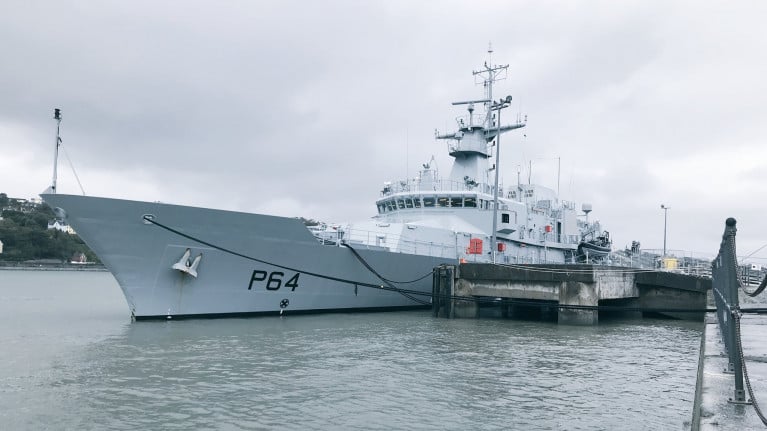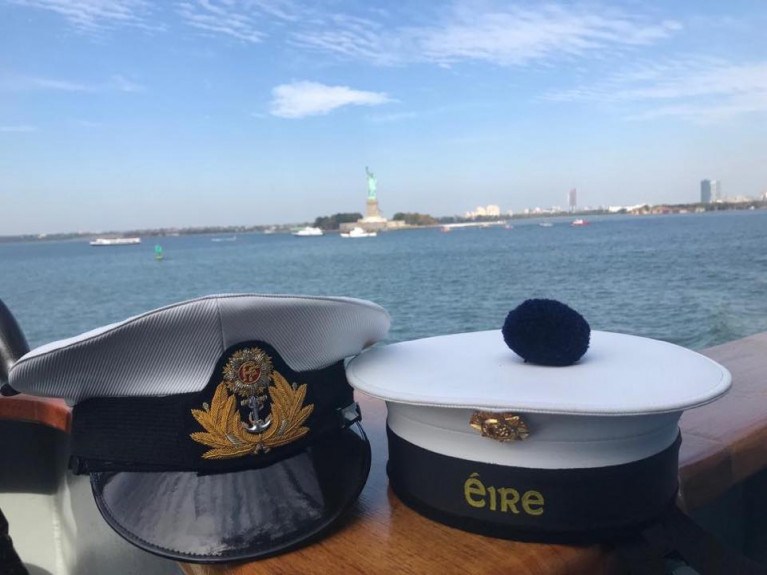Displaying items by tag: Engineers
Staffing Crisis in Naval Service Deepens as Critical Engineers Leave for Better Pay on Cruise Ships
A year ago the Government was warned in a secret report that the Irish Navy (Naval Service) was likely to be reduced to just three operational ships due to a fall in critical engineering staff, The Journal.ie has learned.
It has emerged that the navy has been reduced to just 840 personnel at the Cork Harbour base on Haulbowline island.
This will reduce further in the coming months as upwards of 40 people have indicated that they wish to resign.
A minimum strength for the Service is recommended to be 1,094 fully-trained personnel. The Navy has eight ships attached to its Cork Harbour base – two extra inshore vessels were recently purchased from New Zealand.
It currently has five ships available for operational patrols but repeated concerns have been expressed about the level of staffing.
According to a number of security sources a secret memo carried out by a body dubbed the Joint Operational Planning Group raised the issue.
It is understood that this report, compiled a year ago, warned that the staffing crisis in the Naval Service would result in a further reduction of ships capable of going to sea.
More here on the critical crewing crisis.
Personnel in Defence Forces Drops 338 In Just Seven Months
An exodus in personnel from the Defence Forces (incl. the Naval Service) is continuing, with latest figures showing 338 have gone in the first seven months of this year and 86 recruits who quit during training.
On average, 700 personnel have been discharged every year for the past five years and it appears that 2021 will be no different as traditionally more personnel seek a discharge in the latter months of the year.
The latest figures for June and July, supplied to the Irish Examiner by the Defence Forces, show a further 102 trained personnel left the country's military, with the army again suffering the most.
Of the 58 who left in June, 49 were in the army, three in the Air Corps, and six in the Naval Service.
In July, a further 44 left. Of those, 31 were in the army, five in the Air Corps, and eight in the Naval Service.
During June, 16 recruits quit the Defence Forces during training and a further seven bailed out in July.
The minimum strength for the army is 7,520, whereas it had fallen to 6,912.
The Air Corps numbers stood at 729, but is supposed to be 886. It is suffering from a shortage of skilled technicians.
The Naval Service had 878 at that stage, when it should have 1,094.
Ships have been tied up as a result of crew shortages and there's a critical shortage in particular of specialists, such as marine engineers, engine room fitters, medics and communication personnel.
Click here for further coverage.
Vacancies at Mainport International Corporation
The Mainport International Corporation has vacancies for the following positions.
Masters for their Seismic Support Vessels working worldwide. The suitable candidate is required to have good ship-handling experience, as the position involves replenishment of seismic vessels at sea, while underway. Simulation training will be given at the National Maritime College of Ireland (NMCI) Ringaskiddy prior to commencement of employment.
In addition there are vacancies for Engineers on board their Seismic Support Vessels. The position is for a tour of duty of two-months on and two- months off. Applicants are asked to email their CV and relevant certificates to [email protected] and [email protected]
For further information in general about the Cork based Mainport Group logon to www.mainport.ie and for the NMCI www.nmci.ie































































